Related Research Articles

Iuliu Maniu was an Austro-Hungarian-born lawyer and Romanian politician. He was a leader of the National Party of Transylvania and Banat before and after World War I, playing an important role in the Union of Transylvania with Romania.
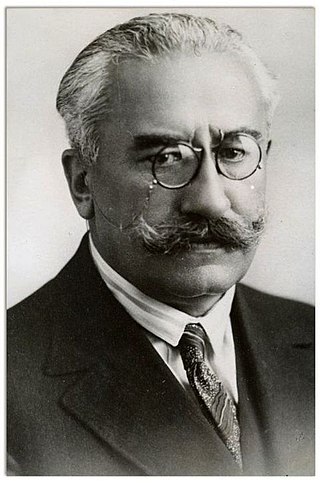
Alexandru Vaida-Voevod or Vaida-Voievod was an Austro-Hungarian-born Romanian politician who was a supporter and promoter of the union of Transylvania with the Romanian Old Kingdom. He later served as 28th Prime Minister of Romania.
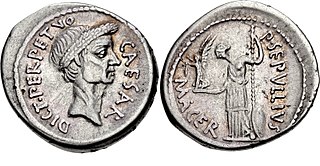
Dictator perpetuo, also called dictator in perpetuum, was the office held by Julius Caesar towards the end of his life. He was granted the title between 26 January and 15 February during the year 44 BC. He would be killed shortly later on 15 March. By abandoning the time restrictions usually applied in the case of the Roman dictatorship, it elevated Caesar's dictatorship into the monarchical sphere.
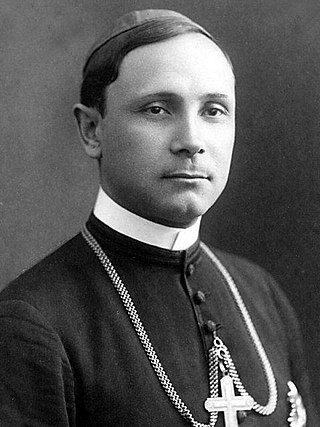
Iuliu Hossu was a Romanian Greek-Catholic prelate who served as the Bishop of Cluj-Gherla. Pope Paul VI elevated Hossu to the rank of cardinal in pectore, that is, secretly, in 1969 but did not publish his appointment until after Hossu's death. The Communist authorities arrested Bishop Hossu on 28 October 1948. From 1950 to 1955 he was detained as political prisoner at the Sighet Prison. He spent the rest of his life under house arrest and died in 1970.
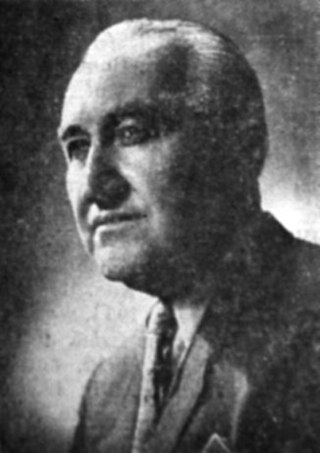
Iuliu Hațieganu was a Romanian internist doctor particularly recognized for research done in the field of tuberculosis. He founded in Cluj a valuable school of internal medicine. Today, Cluj University of Medicine and Pharmacy bears his name. He was a member of the Romanian Academy and brother of politician Emil Hațieganu. He was also an architect, and his work was part of the architecture event in the art competition at the 1936 Summer Olympics.
Iuliu Hațieganu University of Medicine and Pharmacy in Cluj-Napoca, Romania, is the oldest medical education institution in Transylvania, a continuation of the Faculty of Medicine which was founded in 1919, as a part of the Superior Dacia University. The university has over 6,000 national and international students, 2,400 resident physicians, as well as over 1,100 teachers and researchers. It was named in honor of the scientist Iuliu Hațieganu. The university is classified as an "advanced research and education university" by the Ministry of Education.

Gyula Barátky was footballer who represented both Hungary and Romania internationally. His preferred position was the half right.

Iulius Mall Cluj is a shopping mall in Cluj-Napoca, Romania, and was opened on 10 November 2007.

Iulius Town Timișoara is the name of a mixed-use development, edge city and shopping mall located in Timișoara, Romania. Owned by the Iulius Group–Atterbury Europe consortium, the project was conceived from the beginning to integrate Iulius Mall, now completed with office, retail and entertainment functions. The mixed project includes, in addition to the shopping area, a park, event rooms, offices, a health center, a cinema and over 4,000 parking spaces. Over 442 million euros were invested in the first phase of the project, partially inaugurated in August 2019, being one of the largest infusions of private capital in the real estate sector ever made in Romania. The estimated annual traffic for Iulius Town is over 20 million visitors.
Lucius Caesonius Ovinius Manlius Rufinianus Bassus was a Roman military officer and senator who was appointed suffect consul twice, in around AD 260 and 284.
Gaius Julius Caesar was a prominent name of the Gens Julia from Roman Republican times, borne by a number of figures, most notably by the general and dictator Gaius Julius Caesar.
The gens Caesonia was a plebeian family of ancient Rome. They first appear in history during the late Republic, remaining on the periphery of the Roman aristocracy until the time of Nero. Roman empress Milonia Caesonia, the last wife of the emperor Caligula was presumably descended from the Caesonii, as she bore their nomen. Another family of Caesonii attained the consulship several times beginning in the late second century; it is not clear how or whether they were related to the earlier Caesonii.
Iuliu Hirțea was a Romanian bishop of the Greek-Catholic Church.

Giulio Cesare Casseri, also written as Giulio Casser, Giulio Casserio of Piacenza or Latinized as Iulius Casserius Placentinus, Giulio Casserio, was an Italian anatomist. He is best known for the books Tabulae anatomicae (1627) andDe Vocis Auditusque Organis. He was the first to describe the Circle of Willis.
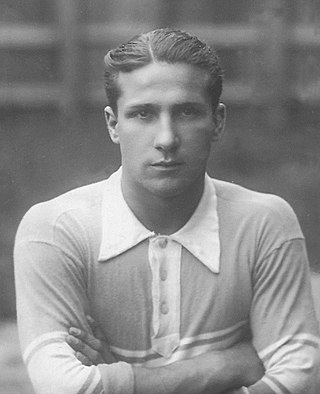
Iuliu Bodola was a Romanian-Hungarian footballer who played as a striker. He represented both the Romania and Hungary national team at internationally level. His nickname was Duduş/Dudus. He is Romania's third all-time top goalscorer, and he is also the all-time top goal scorer of the Balkan Cup.
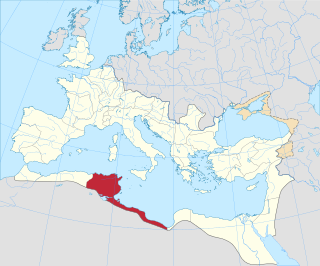
Bonusta was a town, not far from Carthage, in the Roman province of Africa Proconsularis. No trace of it has been identified.

Palas Iași is a commercial area in Iași, Romania located in the Civic Centre district, in the vicinity of the emblematic Palace of Culture.
Iuliu Andrei Hațiegan is a Romanian professional footballer who plays as a forward.
Iuliu Farkaș was a Romanian footballer who played as a forward.
References
- ↑ "Iulius Rufinianus". thesaurus.cerl.org. Retrieved 29 December 2016.